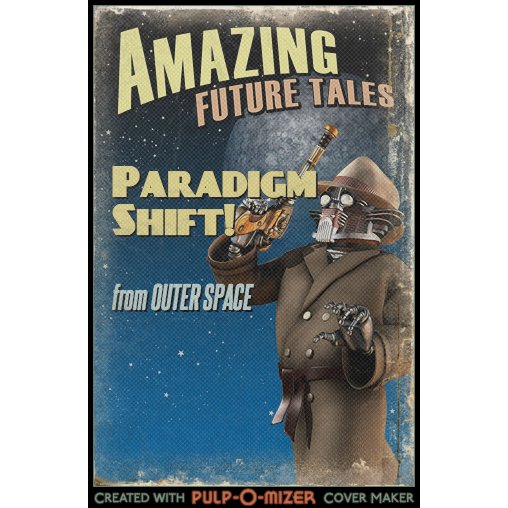In recent weeks there have been several events that have made me think back on some important paradigm shifts in how I read the Bible including being asked by a friend to list some important books that have changed my life, the events in Ferguson, MO, the refuge crisis at our own boarder, the reaction of Fundamentalists to Michael Gungor and company confessing that they don’t read the Bible like Fundamentalists, and the forthcoming release of Peter Enns’ new book The Bible Tells Me So. This may seem like an odd grouping, so let me explain.
(1) First, when I was working on my MA at Western Seminary in San Jose, CA, I realized that whatever I was to do with the word “inerrancy” it couldn’t look like how my professors were using it. I would say the central case study was Genesis 1-11: I was weary of trying to defend an original human couple and a global flood when it seemed like the text didn’t demand this of me as being central to my beliefs as a Christian. Also, literarily, it seemed to be of secondary importance with the important function of providing a setting for the appearance of Abraham and his family (the primary narrative of Genesis). I mentioned Enns above because it was his 2005 book Inspiration and Incarnation: Evangelicals and the Problem of the Old Testament that allowed me to catch my breath. The idea that God may be speaking in Scripture, but that God had to condescend to do so, turned on light after light in my brain. As a modern person I began to ask whether or not I could hear a theological message in the midst of an ancient worldview that might not be restricted to that worldview. Honestly, I think this saved me as a reader of the Bible.

(2) Secondly, at about the same time, while I was organizing a small group Bible study in San Francisco I ran into Judith M. Kunst’s The Burning Word: A Christian Encounter with Jewish Midrash. It has been several years since I read this book, and I can’t tell you whether or not she does a good job handling the idea of Midrash, but I do know that the central image (the one on the cover) became my working model for reading the Bible as Scripture: Jacob wrestling with the Angel. Jacob would not win, the Angel would not be defeated, but the act of wrestling made Jacob into “Israel”, a man changed. Fundamentalism demands we merely “submit” to Scripture, ignoring that their reading of the Bible may not be what the Bible demands. Liberal criticism often acts as if it won the match pinning Scripture to the ground as defeated, but I find this to be hubris. In the middle is the wrestling we know we won’t win, but we wrestle anyways, and we are changed. The Bible is like the Angel in that it can be pushed and shoved—it is a library of human writings—but it can change us forever because it is a primary conduit of the Divine Spirit.
(3) Third, as a synthesis of the first two, I came to embrace historical criticism as a method that Christians can use to understand the Bible. I don’t have all the answers for how this works in relation to being a person of faith. I’ve seen it abused, sure, but I can’t return to the days of ignoring historical-critical scholarship in hopes that if I don’t read it my Bible will suddenly become smooth without any bumps along the way. The problems that appear when reading the Bible will appear either way so I may as well try to be honest and seek truth while being aware of certain epistemological limitations. Historical criticism can assist in this, and though I am aware other hermeneutical paradigms are needed to bring balance, I am unwilling to go back to the Fundamentalist approach that glosses over where the Bible makes us uncomfortable. Currently, I am reading David R. Law’s The Historical-Critical Method: A Guide to the Perplexed and finding that it does a very good job of showing how we modern people came to the point where we read the Bible as we do asking the questions that we do. I recommend it.
(4) Finally, when I read the Bible as a young man it was always about me. I was Moses, I was the men in the fiery furnace, I was the Beloved Disciple, I was anyone who needed to be motivated to be a hero of the faith, and much preaching encouraged this. I mentioned the events in Ferguson, MO, and near our boarder with Mexico because I’ve found that I’ve been challenged to think differently about these texts. The reality is I am often Pharaoh, or Nebuchadnezzar, or the stubborn disciple Peter, or anyone who is not a hero of faith but someone who needs to be challenged. The irony of the Bible is it has been compiled and preserved by the educated elite, but it often challenges and confronts these very people on behalf of the oppressed. I spend a lot of time working through the narratives about John the Baptist and I realize that his message is “good news” to the oppressed Black person in Missouri or the orphaned child in a detention center in south Texas, but I am the tax collector being told to extract nothing more than required. I am the soldier being told not to bribe and harm the people. I am the one with two coats being told to give away one or the person with extra food being told to share it. I am not the oppressed person down at the Jordan River waiting for the arrival of Israel’s God to redeem me, but the privileged being told I need to reform to avoid judgment. I am in Herod Antipas’ palace asking if I am on the wrong side of the coming fire. I am the elite who come to question John about his baptism when I need to be running to the water. The Bible shows me that when I read it correctly it challenges me to recognize that I need to side with God, a God coming to save God’s people, not demand God side with me. This shift doesn’t come from books alone, but from interactions with my Black, Latino, and Asian siblings in Christ whose words (written and spoken) are used by the Spirit to open my eyes to my positionally. This forces me to re-read the Bible asking what character am I. May I not be like Agrippa to Paul: “Almost you persuade me to be a Christian!”
[author] [author_image timthumb=’on’]https://pbs.twimg.com/profile_images/378800000739702904/d118cc7709f88d36e8662b72e4c6785c.jpeg[/author_image] [author_info]Brian LePort is a Ph.D candidate at the University of Bristol/Trinity College Bristol. He received his MA in Biblical and Theological Studies and a Master of Theology (Th.M.) from Western Seminary, where he is now an adjunct for the Online Campus. Born and raised in northern California he now resides in San Antonio, TX, with his wonderful wife, Miranda Perez-LePort. You can learn more about him at brianleport.com. [/author_info] [/author]

